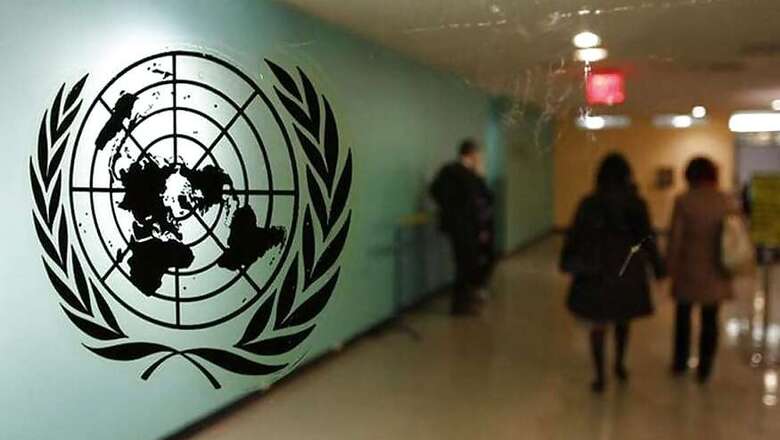
views
United Nations: India has cautioned against the involvement of external actors in the internal or quasi-internal conflicts of states as they have become more frequent and entailed increased level of coercion.
Speaking at the UN Security Council Open Debate on Peacebuilding and Sustaining Peace - Transitional Justice in conflict and post-conflict situations', India's Deputy Permanent Representative to the UN Ambassador K Nagaraj Naidu on Thursday said that transitional justice approaches emerged and developed following military dictatorships, apartheid, and post-Cold War theaters.
"Transitional justice approaches emerged and developed following military dictatorships, apartheid, and post-Cold War theaters, when there was an increasing international consensus that transitional justice measures were needed to deal with past human rights abuses," Naidu said.
"If transitional justice is conceived merely as a band-aid that can be applied to past harms during some unspecified and limited period of transition', without any suggestion that it is attached to some deeper change in the society, it is unlikely that these measures will have any transformational capacity, he said.
Naidu cautioned against the involvement of external actors in the internal or quasi-internal conflicts of states.
"The involvement of external actors in the internal or quasi-internal conflicts of states have not only become more frequent, but has also entailed increased levels of coercion, and state-building activities that are at odds with the traditional concepts of sovereignty," he said.
He said effective transitional justice is not solely a question of whether there should be a domestic or international trial, or a truth commission versus an international trial, or a cultural alternative as opposed to a traditional trial. The question is: What is beneficial to the people whose lives have been disrupted or even destroyed by the perpetrators of violence?, he asked.
Naidu noted that too often, the international community adopts a technocratic, one-size-fits-all approach that can be damaging.
Transitional justice has become steeped in western liberalism, often appearing as distant and remote to those who actually need it most. Rebuilding social capital and livelihood systems is harder than restoring infrastructures and institutions.
It involves redefining relationships, promoting public deliberation, creating a healthy civil society, facilitating the healing process, as well as making institutions both trustworthy and effectively trusted.
UN High Commissioner for Human Rights Michelle Bachelet told the Security Council that for countries to move forward after conflict or mass atrocities, suffering must be acknowledged and justice served.
We know that lasting peace is interlinked with justice, development and respect for human rights. We know that peace does not automatically break out when weapons fall silent and atrocity crimes cease," he said.
"To be able to rebuild lives without fear of recurrence and for society to move forward, suffering needs to be acknowledged; confidence in State institutions restored; and justice done, she said, speaking from Geneva via teleconference," he added.




















Comments
0 comment